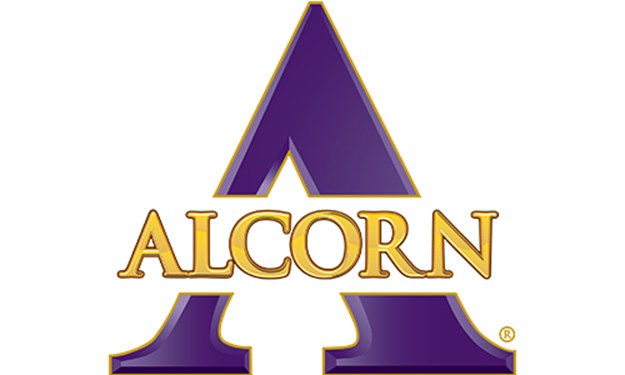USDA News and Events
|
|
From the USDA Office of Advocacy and Outreach (11/15/2016)
AGRICULTURE & FOOD SOVEREIGNTY
Grants, Loans, and Other Programs
- Application Deadline: December 8, 2016 – Farm to School
- Application Deadline: December 8, 2016 – Beginning Farmer and Rancher Development Program
- Application Deadline: December 12, 2016 – Food Insecurity Nutrition Incentive (FINI) Grant Program
News
- USDA Resumes Incentives to Grow the Bioeconomy and Improve Forest Health
- USDA Begins National Agricultural Conservation Survey
Request for Nominations
BUSINESS & COMMUNITY DEVELOPMENT
Grants, Loans, & Other Programs
- Application Deadline: December 31, 2016 – Water & Waste Disposal Technical Assistance & Training Grants
- Application Deadline: December 31, 2016 – Solid Waste Management Grants
- Application Deadlines: March 31, 2017 – Rural Energy for America Program
CONSERVATION & FORESTRY
Grants, Loans, & Other Programs
- Application Deadline: January 6, 2017 – Great Lakes Restoration Initiative Cooperative Weed Management Area
- Application Deadline: January 9, 2017 – Conservation Innovation Grant
- Application Deadline: January 23, 2017 – Wood Energy and Products Innovations
- Sign-Up Deadline: February 3, 2017 – Conservation Stewardship Program
News
EDUCATION, INTERNSHIPS, & EMPLOYMENT
Scholarship
News
AGRICULTURE & FOOD SOVEREIGNTY
Grants, Loans, and Other Programs
- Application Deadline: December 8, 2016 – Farm to School
The purpose of the USDA Farm to School Grant Program is to assist eligible entities in implementing farm to school programs that improve access to local foods in eligible schools. On an annual basis, USDA awards up to $5 million in competitive grants for training, supporting operations, planning, purchasing equipment, developing school gardens, developing partnerships, and implementing farm to school programs. Applications should be submitted to Grants.gov.
- Support Service grants are intended for state and local agencies, Indian tribal organizations, agricultural producers or groups of agricultural producers, and non-profit entities working with schools or school districts to further develop and provide broad reaching support services to farm to school initiatives.
- Implementation grants are intended to help schools or school districts scale or further develop existing farm to school initiatives.
- Planning grants are for schools or school districts just getting started on farm to school activities and are intended to help these entities organize and structure their efforts for maximum impact by embedding known best practices into early design considerations.
- Training grants are intended for state and local agencies, Indian tribal organizations, agricultural producers or groups of agricultural producers, and non-profit entities to support trainings that strengthen farm to school supply chains, or trainings that provide technical assistance in the area of local procurement, food safety, culinary education, and/or integration of agriculture-based curriculum.
- Application Deadline: December 8, 2016 – Beginning Farmer and Rancher Development Program
The Beginning Farmer and Rancher Development Program (BFRDP) provides grants to organizations for education, mentoring, and technical assistance initiatives for beginning farmers or ranchers. BFRDP funds three types of projects:
- Standard Projects: to new and established local and regional training, education, outreach and technical assistance initiatives that address the needs of beginning farmers and ranchers in selected areas
- Educational Enhancement Projects: to help develop seamless beginning farmer and rancher education programs by conducting evaluation, coordination, and enhancement activities for Standard Projects and other non-funded beginning farmer programs
- Curriculum and training clearinghouse: to make educational curricula and training materials available to beginning farmers and ranchers and organizations who serve themApplications may be submitted to Grants.gov.
- Application Deadline: December 12, 2016 – Food Insecurity Nutrition Incentive (FINI) Grant Program
The Food Insecurity Nutrition Incentive (FINI) Grant Program supports projects to increase the purchase of fruits and vegetables among low-income consumers participating in the Supplemental Nutrition Assistance Program (SNAP) by providing incentives at the point of purchase. The program will test strategies that could contribute to our understanding of how best to increase the purchase of fruits and vegetables by Supplemental Nutrition Assistance Program (SNAP) participants that would inform future efforts, and develop effective and efficient benefit redemption technologies. Applications should be submitted to Grants.gov.
News
- USDA Resumes Incentives to Grow the Bioeconomy and Improve Forest HealthNEWS RELEASE – U.S. Department of Agriculture (USDA) Farm Service Agency (FSA) Administrator Val Dolcini announced that $1.5 million will be available in fiscal year 2017 for farmers and foresters who harvest and deliver biomass for renewable energy. The funds are from the Biomass Crop Assistance Program (BCAP), which was reauthorized by the 2014 Farm Bill.
Facilities seeking to be qualified by USDA to accept BCAP-funded biomass can begin enrollment Nov. 14 through Dec. 5, 2016. Also, between Jan. 9, 2017, through March 15, 2017, USDA will accept applications from foresters and farmers seeking incentives to remove biomass residues from fields or national forests for delivery to energy generation facilities. The retrieval payments are provided at match of $1 for $1, up to $20 per dry ton. Eligible crops include corn residue, orchard waste or diseased or insect-infested wood materials.
- USDA Begins National Agricultural Conservation Survey
NEWS RELEASE – The U.S. Department of Agriculture (USDA) National Agricultural Statistics Service (NASS) is surveying 16,000 farmers and ranchers across the country through February 2017 about their conservation and production practices on cultivated and non-cultivated farmland. The results of the 2016 National Resources Inventory-Conservation Effects Assessment Project (NRI-CEAP) survey will further document on-farm conservation accomplishments and develop science-based solutions that help farmers and ranchers improve the environment.
- Nomination Deadline: December 5, 2016 – FSA County Committee Elections to Begin; Producers to Receive Ballots Week of Nov. 7
NEWS RELEASE – Farm Service Agency (FSA) Administrator Val Dolcini announced that the U.S. Department of Agriculture (USDA) will begin mailing ballots to eligible farmers and ranchers across the country for the 2016 FSA County Committee elections on Monday, Nov. 7, 2016. Producers must return ballots to their local FSA offices by Dec. 5, 2016, to ensure that their vote is counted.
County committee members apply their knowledge and judgment to help FSA make important decisions on its commodity support programs, conservation programs, indemnity and disaster programs, and emergency programs and eligibility.
BUSINESS & COMMUNITY DEVELOPMENT
Grants, Loans, & Other Programs
- Application Deadline: December 31, 2016 – Water & Waste Disposal Technical Assistance & Training Grants
The Water & Waste Disposal Technical Assistance & Training Grants help qualified, private non-profits provide technical assistance and training to (a) identify and evaluate solutions to water and waste problems; (b) assist applicants in preparing applications for water and waste disposal loans/grants; and (c) assist associations in improving operation and maintenance of existing water and waste facilities in eligible rural areas.
- Application Deadline: December 31, 2016 – Solid Waste Management Grants
Solid Waste Management Grants help reduce or eliminate pollution of water resources through funding for organizations that provide technical assistance or training to improve the planning and management of solid waste sites. Applications may be submitted to Grants.gov.
- Application Deadlines: March 31, 2017 – Rural Energy for America Program
NEWS RELEASE – USDA is accepting Rural Energy for America Program (REAP) applications for: 1) energy audit and renewable energy development assistance grants, and 2) renewable energy system and energy efficiency guaranteed loans and grants.
The application deadline for energy audit and renewable energy development assistance grants is Jan. 31, 2017. Applications for renewable energy system and energy efficiency grants of $20,000 or less are no longer accepted, for the first funding cycle and March 31, 2017, for the second funding cycle. Applications for renewable energy system and energy efficiency grants of greater than $20,000 and all combination grants and guaranteed loans are due by March 31, 2017. USDA will set aside 20 percent of the funds for grants of $20,000 or less.
For additional information, contact the USDA energy coordinator for your state, or see page 71689 of the October 18 Federal Register.
CONSERVATION & FORESTRY
Grants, Loans, & Other Programs
- Application Deadline: January 6, 2017 – Great Lakes Restoration Initiative Cooperative Weed Management Area
The goal of this program is to detect, prevent, eradicate, and/or control invasive plant species to promote resiliency, watershed stability, and biological diversity on federal, state, or private land. Interested Cooperative Weed Management Areas (CWMAs) or Cooperative Invasive Species Management Areas (CISMAs) or similar organizations within the US Great Lakes Basin (parts of MN, WI, MI, IL, IN, OH, PA, and NY) can apply at Grants.gov.
- Application Deadline: January 9, 2017 – Conservation Innovation Grant
Conservation Innovation Grants (CIG) are competitive grants that stimulate the development and adoption of innovative approaches and technologies for conservation on agricultural lands. CIG uses Environmental Quality Incentives Program (EQIP) funds to award competitive grants to non-Federal governmental or nongovernmental organizations, American Indian Tribes, or individuals. Producers involved in CIG funded projects must be EQIP eligible.
Up to $2 million of this year’s CIG funding has been set aside for projects that benefit historically underserved and military veteran farmers and ranchers, beginning farmers and ranchers and those with limited resources and organizations that include or support them. Applications should be submitted to Grants.gov.
- Application Deadline: January 23, 2017 – Wood Energy and Products Innovations
The U.S. Forest Service (Forest Service) requests proposals to substantially expand and accelerate wood energy and wood products markets throughout the United States to support forest management needs on National Forest System and other forest lands. This Request for Proposal focuses on the following priorities to:
- Reduce hazardous fuels and improve forest health on National Forest System and other forest lands.
- Reduce costs of forest management on all land types.
- Promote economic and environmental health of communities.
Funding will be awarded to two separate categories outlined as follows. - Grant Category 1: Expansion of Wood Energy Markets
- Grant Category 2: Expansion of Wood Products Markets
Applications should be submitted to Grants.gov.
- Sign-Up Deadline: February 3, 2017 – Conservation Stewardship Program
NEWS RELEASE – Starting in November, the U.S. Department of Agriculture’s (USDA) Natural Resources Conservation Service (NRCS) will accept and process applications for enrollment in the Conservation Stewardship Program (CSP), the nation’s largest conservation program. Applications will be made available in local service centers.
Through CSP, agricultural producers and forest landowners earn payments for actively managing, maintaining, and expanding conservation activities like cover crops, ecologically-based pest management, buffer strips, and pollinator and beneficial insect habitat – all while maintaining active agriculture production on their land. CSP also encourages the adoption of cutting-edge technologies and new management techniques such as precision agriculture applications, on-site carbon storage and planting for high carbon sequestration rate, and new soil amendments to improve water quality.
EDUCATION, INTERNSHIPS, & EMPLOYMENT
Scholarships
- Application Deadline: December 31, 2016 – USDA’s Office of Advocacy and Outreach is accepting applications for the 1890 National Scholars ProgramThe USDA/1890 National Scholars Program is a partnership between the USDA and 1890 land-grant universities. The purpose of the scholarship is to increase minorities studying agriculture, food science and natural resource sciences.
Each 1890 National Scholar receives paid room and board, tuition, school fees, and books. In addition to the debt-free education, scholars also participate in summer internships with their USDA sponsoring agency. After graduation, scholars are eligible to apply for full-time middle management positions with the USDA.
News
- USDA, Partners Celebrate First Wood-to-Jet-Fuel Commercial Flight
NEWS RELEASE – Alaska Airlines today landed the first commercial flight powered in part by a new renewable fuel made of wood waste salvaged from private lands in Washington, Oregon and Montana. Agriculture Secretary Tom Vilsack greeted the passengers for flight AS-4 arriving from Seattle at Washington Reagan National Airport to highlight this breakthrough in bioenergy that supports jobs and rural economies by developing a sustainable bio-products industry in the Pacific Northwest utilizing wood harvest left-overs that would otherwise go to waste.
Technology Fellows will perform innovative space technology research and will improve America’s technological competitiveness by providing the Nation with a pipeline of innovative space technologies. Applications should be submitted to Grants.gov.





